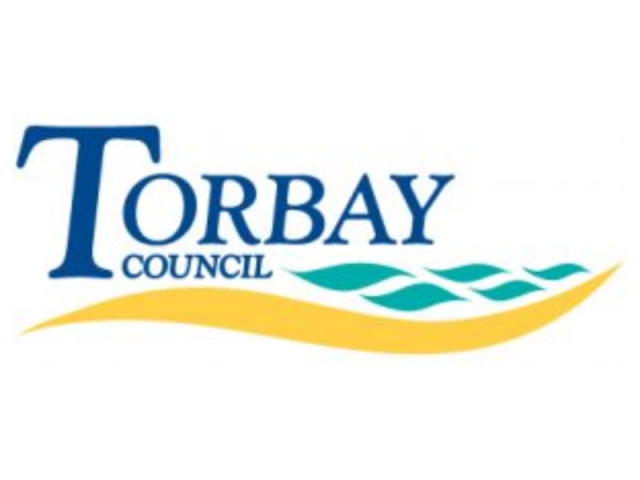From The Public Sector to a Shared Service in 12 months
Giles Letheren
From The Public Sector to a Shared Service in 12 months

The Public Sector is something that appears in 1.3 billion google search results. In the UK, it appears on a headline every day in newspapers and well groomed people in brightly lit studios talk about it on TV; it is ubiquitous, permeating, influential, silent, governing, a Nanny State, inefficient, a vanguard, responsible, sometimes a Parent, vital, an example, progressive. It is many things to many people but one thing it has always been and always will be (we must protect it with our lives by the way) is evolving. To attempt to define it though would be a Gordian knot. I was (and still am) employed in the public sector and have been for most of my adult life. My Father and my Grandfathers have worked within the Public Sector. My partner works within the Public Sector and my children have and are being taught by it. Some of my dearest friends work for the Public Sector and many more have sadly left. It has been a massive influence upon my professional life and has taught me more about being me than any school or university ever did. As a human, I also use and pay for the Public Sector. You can’t escape its embrace (who would really want to!) but sometimes, it isn’t like being hugged by a big furry bear, it’s like being hugged by that suspicious Aunty you don’t trust and see once a year at Christmas. Working for the Public Sector can be cruel and thankless and really quite upsetting. On January 1st 2018, I managed a very small service area of Plymouth City Council, a Unitary Authority consisting of around 2,500 people serving upwards of who knows how many members of the public (or service users, clients, customers or whatever the current buzzword is); we were there to help and make the lives of people better. What other business does that? It was tiring but the fact we were there to help people in some way kept me turning up every day for 18 years.
I managed the Print Room on January 1st 2018 and during that transition from 2017 to 2018, a concept of transferring my service area to a Shared Service was being floated around. Someone somewhere mentioned Carillion. The suggestion made me recoil and almost hours after this was publicised, the front page of the Financial Times laughed out loud at the suggestion and someone’s trousers metaphorically fell around their ankles. Inevitably, that particular flotation sank to the bottom of the sea of Capitalism and Carillion went bust (boo hoo) and the idea was flushed (you get where that analogy is going don’t you?).
Along came DELT Shared Services. The IT people who were once situated on Floor 2 of the Civic Centre had become a Shared Service four years before and everyone at Plymouth City Council who had a business centre or a function they could sell were envious of what DELT had become in those short four years. It was put to me, in a hushed tone in a quiet corner, that we were in the frame to join with DELT. I think the Senior Managers at Plymouth City Council were bored of hearing from me in the end; I was like Bob Geldof during that Live Aid interview where he pounded the table and shouted “Send us your f**king money NOW!” – we wrote the business case and it made sense (it wrote itself) as I’d been leading a viable service area for the past three years and there was an upward curve and my blood, sweat and tears (cliché alert) were bearing fruit so it felt natural to release us and allow us to become something better; we needed to become free and DELT looked a good proposition. I think most of the Senior Management Team sighed with relief when they heard that the sand in their swimming trunks would soon be gone. It was a better option than Carillion who’d left behind them a wake of half built hospital wings and a huge debt the Government would have to fill. Austerity coupled with public money being poured into private ventures with shareholders to pay is about as toxic a mix as you could imagine. It looks like Interserve are heading for the same slippery slope. When will they learn?
We transferred on the 12th September. Three months isn’t a long gestation period unless you are a Wombat (you can make three Wombats in three months according to Wikipedia – one a month! Imagine having a free Wombat every month). We’ve been reborn in three months and Shared Services are an interesting concept but I feel that DELT Shared Services is the right concept and it is one of the good ones.
Capacity in my area is key and the aim is to create capacity simultaneously alongside increasing production. It is all about growth and with growth, creating economies of scale. The concept is simple; the more you make, the cheaper it becomes but you need to be making more in less time so you can make even more with the time you have created. DELT’s slogan/concept/jingle is Faster, Better, Cheaper. I like FASTER and I like BETTER but CHEAPER made me feel uncomfortable as I am, at heart, an artisan.
I can present an ill informed, anecdotal account of what I think are the differences between 100% pure Public Sector and Shared Services (ultimately, in the case of DELT, I think they’re the same thing) but I’d be wrong. I can only speak of the positives it has brought me personally.
In the three months I’ve been a part of DELT I’ve had the following things happen that were non-existent in the last 8 of the previous 18 years I have worked for the Public Sector.
- Genuine praise and encouragement from senior managers. I think there is a fear of praising anyone in the Public Sector who you manage as you never know, you might be having to make them redundant within months when the Chancellor comes knocking on the door like a malignant debt collector. Genuine praise is something that money can’t buy. It’s better than a bonus or a pay rise. Pay rises are very nice though as they help you buy more Nintendo games.
- Investment. We’ve just signed a 5 year contract and the equipment we have now (newly installed) are the best machines we have ever had by an absolutely massive margin. In my industry, if you don’t invest, you die. It isn’t that different to any other industry but the Public Sector mantra since 2010 has been MORE FOR LESS. You can’t conceivably create more with less in the manufacturing industry as LESS is anathema you can make much MORE with a little bit EXTRA and Shared Services can achieve that.
- Trust and transparency. People suddenly trust me to provide a service. The Public Sector is an incredibly scared environment to work in. You feel that you are under scrutiny at all times and a sense of paranoia is everywhere but nobody seems to take the time to actually explain what they expect you to do – as long as the budget looks OK, you’ll be safer than an Orange Cream Quality Street on Boxing Day. In addition, if you are over-achieving and it becomes noticeable, people above you get twitchy; “What is he after?!” In a good Shared Services environment (one I currently reside in), that is encouraged. If you aren’t trying to outdo yourself or your peers or your manager, you might as well stay in bed. I have always held the ethos that you must mould your team to succeed you and I feel that a good Shared Services setting can allow that to happen.
- Happiness. This is personal. I am a far happier human today than I was 12 months ago. I loved my job 12 months ago and loved what I did. I enjoyed the end product of my efforts and always have. What I really didn’t enjoy was where I worked. Public Sector organisations like a Council are led by politicians and that flows through the entire structure. Politics, office politics, inter-Departmental politics. A Shared Service doesn’t have that problem and it is a relief to be out of the smoke and breathing the clean air of working as a cohesive hive. I enjoy going to work and enjoy waking up on a week day. I am a better person now than I was 12 months ago. I am less negative and less angry and I haven’t hit a table like Bob Geldof since September 12th.
If you have got to the end, thanks for reading. I’m off to play Street Fighter 5 with my daughter now. I’ve not spell checked this or proof read it either as another thing I’ve found is that I no longer worry about being perfect.
Photo Credit: RyanCR
Aaron Hartley – Print Supervisor
Exit, Pursued By A Bear

Exit, Pursued By A Bear
I helped facilitate a provocation session yesterday around ways of thinking about work and the pace of work. It was billed as a training session but that implies I have either answers to problems or some useful skills to share. Unfortunately I have neither but can usually provoke a discussion amongst the smart people in the room.
One thing that became clear early on was just how risk averse many of our IT people are. Despite my refrain of ‘what’s the worst that can happen’ I was left feeling that I was missing something. All rationality and common sense suggests that beyond reasonable doubt, most actions will be OK – or at least quickly reversible. Yet despite the overwhelming logic of the facts, most of our IT guys and girls remain very cautious. Yesterday I concluded this risk aversion and fear of failure might be because I am bad tempered when something that impacts our customers goes wrong. However, I’ve had an epiphany – it’s nothing to do with fear. It’s genetic.
Imagine two stone age IT geeks asleep in separate caves. Lets call them Giles and Paul. Because they are IT geeks, they are likely sleeping alone. In the middle of the night, both hear a rustling noise. Giles, being logical and happy with risk, analyses the noise and assumes that as it is windy outside and autumn, the rustling is leaves blowing around. He goes back to sleep. Paul, who is not at all logical and a little bit risk averse decides the noise might be a bear and gets himself a pointy stick.
While Paul is sharpening his stick, Giles is eaten by a bear.
Paul goes on to donate his genetic material to a new generation of slightly more risk averse IT geeks. Thus the appetite for risk, even when all logical thought suggests that nothing too bad will happen, continually reduces. It’s about survival!
This is a more difficult problem than I thought.
Photo Credit: Pexels.com
Giles Letheren – Chief Executive Officer
On a Conference Call with the Evil Empire

On a Conference Call with the Evil Empire
Following my last blog about being tracked by the Evil Empire using UHF RFID everywhere I went at a recent conference, imagine my delight when the Evil Empire invited me to a conference call to discuss it. Apparently, the Evil Empire reads my blog.
John and Dan (senior and important guys at the Evil Empire) were super cool about the whole thing. They were very open and honest about their lack of truly evil intent. The reason for the scanning is primarily to manage capacity at future events. What sessions need to be in what size room? We did establish that there were some signs acknowledging the use of RFID and confirming the data wasn’t shared with third parties. I probably walked right past one. I was shown some (rather small) text talking about RFID that was displayed briefly on the confirmation page of the sign in screen where I waved my emailed QR code to get my conference badge. Because the whole sign in process was so slick and was hands-off, I wasn’t engaged with the device at that point, I was looking at the check-in agent who was printing me my badge.
So, having established that I was probably looking in the wrong place at the right time, which is situation normal, we got onto the subject of consent. There is an implied consent to use RFID technology in the terms and conditions for the event but they are only ever referred to rather than presented. I referred my new friends to Article 4 (11) of the GDPR which qualifies consent as:
‘“any freely given, specific, informed and unambiguous indication of the data subject’s wishes by which he or she, by a statement or by a clear affirmative action, signifies agreement to the processing of personal data relating to him or her”.
This means that a reference to ‘terms and conditions’ published elsewhere isn’t good enough. The Evil Empire agreed (foolishly trusting me to quote the right bit of a 261 page set of regulations). You know, I think they might do something about it and perhaps at the next event I’ll be asked if my personal location data can be used. If so, I’ll say yes, because this is a perfect use case for RFID. Technology is amazing and incredibly powerful. I’m sure the Evil Empire will use the data – my data – to make their events even better. But it is my data and just because you can doesn’t mean you should, without asking first. As a wiser man than me once said, “With great power comes great responsibility”
Photo Credit: Markus Spiske
Giles Letheren – Chief Executive Officer
Ever Feel Like Somebody Is Watching You?

Ever Feel Like Somebody Is Watching You?
Along with about 7000 other business leaders from across Europe I recently attended a technology conference. It was exceptionally well organised and like almost all other big events now, it had its own app. The app is a genuinely useful tool to tell you where you need to be and when as well as how to get there from where you are. This year it featured ‘WiFi beacon technology’ which was an opt-in feature that would allow the app to deliver you proximity based information. In other words, the app would know, with a fair degree of accuracy, where in the conference you were. This doesn’t especially bother me but I have no desire to receive a stream of targeted advertising information every time I wander past a vendor stand. I opted out. The app tried to persuade me otherwise and every time it downloaded an updated schedule, which was at least four times a day, I had to opt out again.
Like every other big conference, you are required to wear a big badge which identifies who you are, your company, your country and has the same information accessible on a bar code. Every time you go within spitting distance of a vendor, they scan the bar code, thus qualifying you as a ‘warm lead’ who will be spammed to within an inch of your life.
Wifi coverage at the conference was flawless, even with 7000 people all using it at once. Impressive, but they did have hundreds of access points. They actually seemed to have more access points than seemed necessary. They also seemed to be located in some rather odd places. When nobody was looking I investigated. Some of the things that looked to be access points weren’t. Using Google’s encyclopedic knowledge of strange boxes I established that these were high power, ultra-high frequency radio frequency identification antennas. The conference organisers were tracking something.
But what?
And why?
It couldn’t be people could it? That would surely require a privacy consent, which I hadn’t given. Cynically, I checked the back of my conference badge. Nothing there. It was just a paper badge. The badge holder was clear plastic. The lanyard was just a lanyard. But still… somebody had brought in a lot of tracking infrastructure for something and tracking people seemed the only sensible explanation.
In low quantities, passive UHF RFID tags cost only a few pence. They can be read from more than 30 meters away and they are almost undetectable.
Almost.
Photo by Niv Singer on Unsplash
Giles Letheren – Chief Executive Officer
Happy 4th Birthday

Happy 4th Birthday
Today is Delt’s fourth birthday and I sat down very excitedly to write a blog about how awesome we are, given that so many new businesses fail to make it this far. To illustrate this, I went searching for an academic paper on business failure rates and the first one I found ended up being a great trashing of all the other papers on failure rates. Everyone does the maths wrong it says. Some papers say 50% fail before 4 years, some say 20%. At least one said 98%. OK, let’s try something else.
My kids were born in the States where there is a national obsession with measuring developmental milestones. You can’t take children anywhere without somebody trying to measure their head. According to Wikipedia, now that we are four years old we should have reached the following developmental milestones:
Physical Development
Head Size: Disappointingly, the head measuring apparently stops at age 3 but I’m pretty sure if measured we would have quite a large head. We help people do amazing things. That’s something to be big headed about.
Motor Development
Runs, starts, stops and moves around obstacles with ease: The events team are all over this. We climb things, swim in things, jump off things, lift things, run, walk, cycle and generally get too hot and sweaty for anyone’s comfort. The launch of our Health and Wellbeing platform last week should make this even better.
Cognitive
Delights in worldplay, creating silly language; For sure. You have Delt for a start. What does that even mean? Then Delt Rad. Delt Frosa. Where does all this stuff come from?
Very good storytellers: We’ve become very adept at telling our story. Even those who doubt the Delt model tend to say after hearing our story: ‘What’s not to like?’
English Language
Speech is almost entirely intelligible: This one is a fail. Our recent social media posting alongside a picture of a Delt mug that said: Don’t be a mug and join our team instead of Don’t be a mug, and join our team shows we don’t quite get it right.
Social Development
Establishes close relationships with playmates; beginning to have best friends: We have build incredibly close and collaborative partnerships with our primary clients but very much understand that in a shared service, there are no best friends.
Shows pride in accomplishments: We have returned millions to our public interest shareholders, have delivered more millions in socio/economic benefit, delivered big improvements in service, availability and resilience and made new friends. That’s plenty to be proud of. Happy Birthday Delt!
Giles Letheren – Chief Executive Officer
Well Connected

Well Connected
As expert providers in community engagement and health improvement in the South West region, Well Connected help disadvantaged groups to access services and adopt positive lifestyles.
I Love Letters

I Love Letters
When I was a CIO (at the MoD) I owned all sorts of ‘information processing’. As well as IT I was responsible for a technical library that contained all sorts of very obscure books, mostly about interesting and unpleasant ways to kill people. I had my own Post Office – which was handy as I was based in Washington DC and to my knowledge, ran the only full British Post Office in the US, with overnight mail service to the UK. The whole thing was especially trippy as most of the postal staff were army regulars and came to work in BDUs. For the uninitiated, that’s Battle Dress Uniform – clothing for killing people! I also had to look after the archaically named ‘Registry’ which is where thousands of paper files were kept by a team of clerks. We had everything from the mundane through to TOP SECRET (CODEWORD) material, which adding to the general air of weirdness meant I was responsible for staff cleared to handle material I wasn’t allowed to see.
Although managing digital is the way of the future I come from a generation where there is still a great fondness for good old paper documents. There is something tangible about a real book or a real letter that you don’t get from an email.
It is with a great degree of retrospective satisfaction therefore, that I see the onboarding of our latest service offering – Print and Mail. Although Delt spends much of its time trying to digitise the analogue, there will be a requirement for printed documents and the means to move them around for many years to come. From today, we have the people, the equipment (some of which looks like it would eat a misplaced arm – and if you read my previous blog, you’ll know just how much I like dangerous tools) and ability to do that at scale.
Exciting times, especially if you like your books produced on paper rather than liquid crystal.
Giles Letheren – Chief Executive Officer
Torbay Council

Torbay Council
Torbay Council is the local authority of Torbay in Devon, England. It is a unitary authority, having the powers of a non-metropolitan county and district council combined. It provides a full range of local government services including Council Tax billing, libraries, social services, processing planning applications, waste collection and disposal, and it is a local education authority.
Hospiscare

Hospiscare
Hospiscare was formed in 1982 with two community nurses and the hospice was opened in 1992. They are an Exeter based local, independent charity which provides high quality care and support to people with a progressive life-limiting illness and those close to them living in Exeter, East and Mid Devon.











